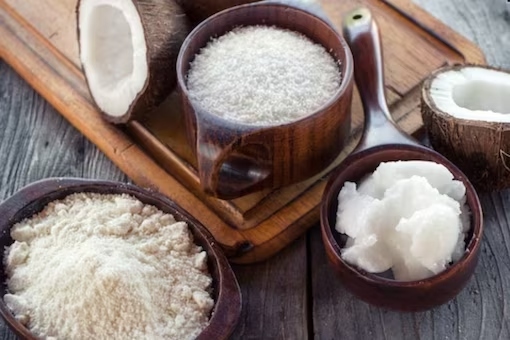Coconut flour has gained popularity as a healthier alternative to wheat flour, particularly among nutritionists and those following low-carb diets. It’s especially favoured by individuals with gluten-related disorders due to its gluten-free nature. This flour is derived from the grated and ground flesh of coconuts. The process involves cracking open coconuts, draining them of liquid, followed by scraping, rinsing, and grating the flesh. The solids are separated from the milk through straining and are then baked at low temperatures until they achieve dryness. Finally, the dried solids are ground into a fine powder, resembling wheat or corn flour. Coconut flour is commonly used in baking products like cupcakes, bread, and cookies. Besides its pleasant aroma and taste, coconut flour offers numerous health benefits.
Gluten-Free
Today, most people have started adding gluten-free food to their daily diet. For them, coconut flour is the best option if you have a gluten allergy or celiac disease. The dough of coconut flour can be baked and eaten. It is typically made by grinding the dried meat of coconut which leads to no grains and low carbs.
High In Fibre: Coconut flour contains a high amount of fibre. 100 grams of coconut flour contains up to 45 grams of fibre. Doctors also recommend that we should eat 30 grams of fibre per day to stay healthy. It also reduces the risks of colon cancer. The high fibre content in coconut flour helps in keeping the digestive system healthy as well. Due to the insoluble nature of the fibre, it helps in the bowel movement, hence reducing the risk of constipation.
Blood Sugar Stable: It helps regulate blood sugar levels by slowing down the speed at which sugar enters your bloodstream. It can be beneficial for the diabetic patients. It also promotes a healthy body weight. As compared to other flour, coconut flour has low carbohydrates and has higher amount of protein. Diabetic patients much with to coconut flour to regulate sugar levels in their daily diet.


